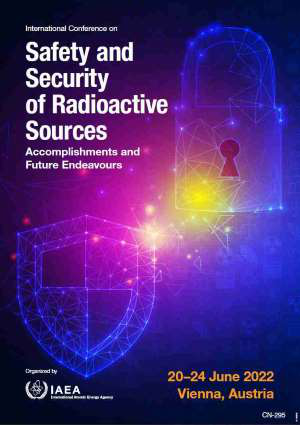Speaker
Description
Samples of borosilicate glass-matrix were obtained by preliminary melting of a mixture of a calcined solution-simulator of LRW of NPP with WWER-1000 reactors with addition of glass-forming silicon oxide, in the form of sand, and 10 wt. % lead oxide or calcium fluoride, followed by glass-melting and pouring glass into metal molds.
Simulated γ-irradiation of borosilicate glass-matrix samples was carried out on a linear electron accelerator LU-10 (NSC KIPT) using bremsstrahlung radiation. The average energy of photons is equal to 10.4 MeV. The rate of the absorbed dose is equal to 1.09 kGy per hour.
The calculations of absorbed doses and dose maps in borosilicate glass-matrices were made by using software toolkit GEANT4. The calculated absorbed dose for 300 years of storage borosilicate glass-matrices with isotopes of 137Cs, 134Cs and 60Co is equal to 332.46 Gy.
No changes were observed in the structure, mechanical strength and corrosion resistance of the irradiated samples of borosilicate glass matrices.
| Country OR Intl. Organization | Ukraine |
|---|

